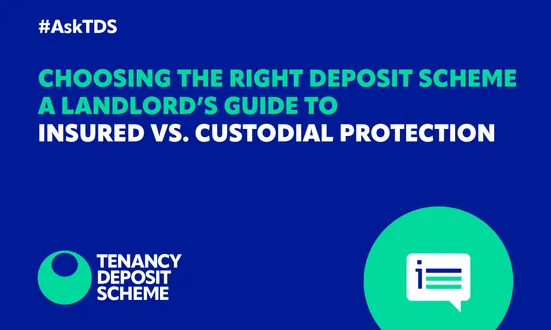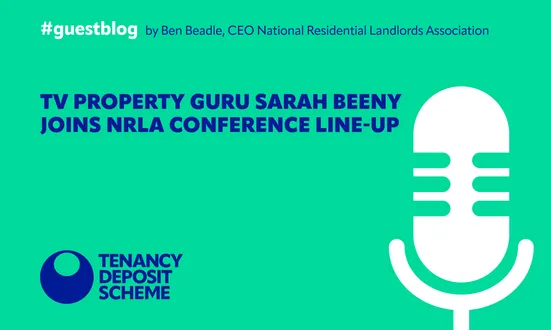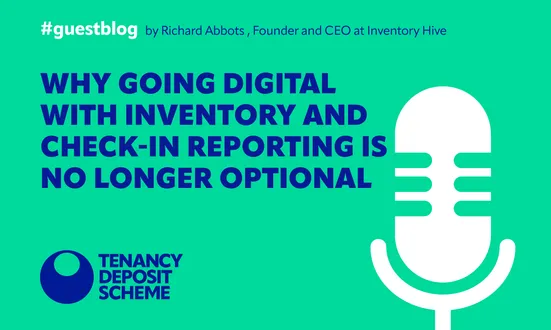As a tenant, it’s worth fully understanding your rights when it comes to repairs and maintenance in your rented home. Knowing who is responsible for what, how long repairs should take, and how the Tenancy Deposit Scheme fits in can help you avoid confusion and protect your deposit. Here, we answer all your key questions surrounding repairs and maintenance in rented homes.
What condition should my private rented property be in?
Your landlord has a legal obligation to make sure the property is safe and habitable. This includes ensuring the structure and exterior, such as the roof, walls, windows, and floors, are in good repair. They must also maintain the essential systems in the property, including the heating, hot water, plumbing, electrical wiring, and gas supply.
Additionally, your landlord must ensure that the property is free from hazards that could affect your health and safety, like condensation, damp, mould, or infestations. If the property is not fit for habitation, your landlord is responsible for addressing these issues.
What are the minimum requirements for a private rented property?
There are several key legal requirements for your landlord:
- Gas appliances: These must be inspected by a Gas Safe engineer annually.
- Electrical inspections: The electrics in the property should be inspected every 5 years.
- Energy efficiency: The property must meet minimum energy efficiency standards.
- Furniture and appliances: Any furniture supplied must meet fire safety regulations, and appliances must be kept in good working order.
These requirements ensure that your home is safe, comfortable, and fit to live in.
What should my landlord do if the property needs repairs?
Once your landlord becomes aware of a repair issue, they must address it within a reasonable time. The timeline for repairs depends on the severity of the issue.
- Emergency repairs: Problems like a burst pipe should be dealt with immediately (within hours).
- Urgent repairs: Issues such as a broken heating system, especially in winter, should be fixed within a few days.
- Non-emergency repairs: Less urgent issues, like replacing defective windows, a reasonable timeframe may be weeks or longer.
- Major structural issues: Problems such as cracks in the walls from subsidence, a reasonable timeframe may be months to resolve.
A reasonable timeframe depends on the complexity of the repair and the impact it has on your living conditions. In general, landlords should act promptly to ensure that repairs don’t disrupt your comfort or safety.
What can I do if my home is in poor condition and my landlord won’t fix it?
If your landlord refuses or fails to carry out repairs, you have a few options:
- Report it to the council: If there are serious hazards, such as issues affecting health or safety, you can report the problem to your local council. They have a duty to inspect properties and enforce repairs when necessary.
- Seek legal advice: If your landlord ignores the issue, you can consult a solicitor to explore legal action. A County Court can order your landlord to carry out the necessary repairs and even pay compensation.
- Take action through the TDS: If the condition of the property has caused issues mid-tenancy, and you’re unable to resolve it with the landlord, the Tenancy Deposit Scheme can step in to resolve mid-tenancy disputes, or end of tenancy disputes over any unfair deductions.
How can the Tenancy Deposit Scheme help?
Many tenants worry about how reporting repairs could affect their deposit. If a landlord charges for repairs at the end of your tenancy, the Tenancy Deposit Scheme can help resolve a potential dispute.
If there’s a disagreement over whether you should be charged for repairs, TDS offers a free and impartial adjudication service. This ensures that both tenants and landlords have a fair chance to present their evidence, and the TDS will make a decision based on the facts.
To ensure that you get your full deposit back, it’s essential to:
- Take photos: Document the condition of the property when you move in and out.
- Report issues quickly: Notify your landlord of any issues as soon as they arise to prevent further damage.
- Leave the property in good condition: Clean and maintain the property when you move out to avoid deductions for unnecessary cleaning or minor repairs.
If you encounter issues with repairs during your tenancy, the Tenancy Redress Service can help.
Owned and operated by the TDS Group, the Tenancy Redress Service is a free service that aims to facilitate the resolution of complaints between tenants and their landlords.
The service allows tenants to raise complaints about their landlords (as long as the tenancy is in England, Scotland or Wales and the tenant has already tried to resolve the matter with the landlord). However, if a landlord is not a member of the Tenancy Redress Service, we will still try to resolve the tenant’s complaints. If we can get the landlord to agree to talk to us.
Understanding your rights and responsibilities regarding repairs can help you maintain a safe and comfortable living space. If your landlord fails to make necessary repairs, there are steps you can take to ensure that issues are addressed, and your tenancy deposit is protected. The Tenancy Deposit Scheme provides an important service in resolving disputes and ensuring that deposit deductions are fair. By staying proactive and informed, you can help safeguard your home and your deposit.
About TDS
The Tenancy Deposit Scheme is part of The Dispute Service (TDS), the largest tenancy deposit protection (by value) and resolution service provider in the UK making life easier for tens of thousands of agents, landlords, developers, and millions of tenants and homebuyers.
Our award-winning customer service is highly rated on both Trustpilot and Google, and we’re backed by the NRLA, Propertymark and RICS.
We provide quick and hassle-free online deposit protection, free guides and information in our online help centre, free dispute resolution and free mid-tenancy mediation for tenants and landlords.
Our free tenant lifecycle app, tlyfe, makes renting smarter. Manage your TDS deposit, get pre-qualified, build your credit ratings, and more.
Other news stories


